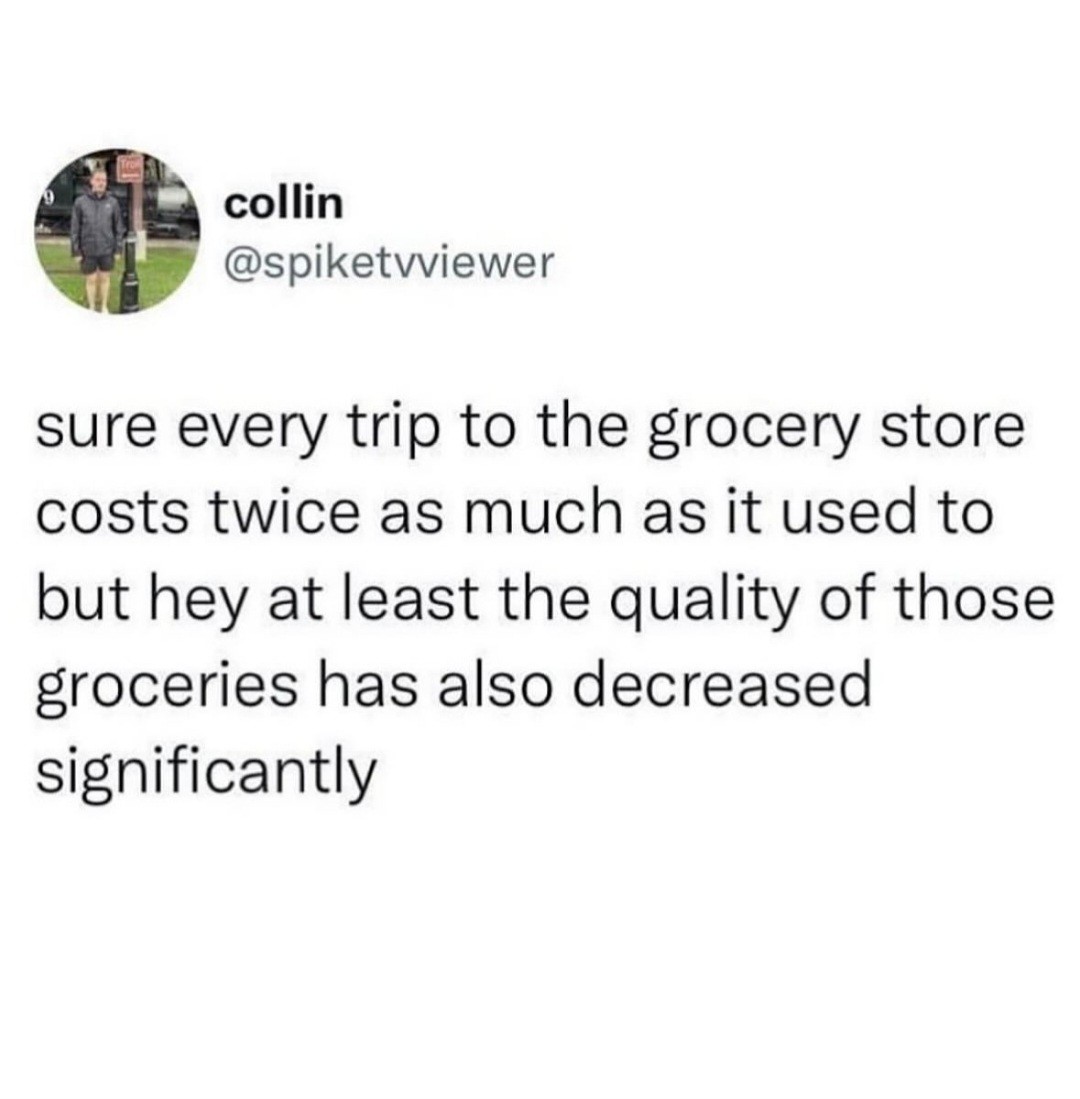this post was submitted on 07 Jul 2025
998 points (99.4% liked)
Political Memes
8804 readers
2617 users here now
Welcome to politcal memes!
These are our rules:
Be civil
Jokes are okay, but don’t intentionally harass or disturb any member of our community. Sexism, racism and bigotry are not allowed. Good faith argumentation only. No posts discouraging people to vote or shaming people for voting.
No misinformation
Don’t post any intentional misinformation. When asked by mods, provide sources for any claims you make.
Posts should be memes
Random pictures do not qualify as memes. Relevance to politics is required.
No bots, spam or self-promotion
Follow instance rules, ask for your bot to be allowed on this community.
No AI generated content.
Content posted must not be created by AI with the intent to mimic the style of existing images
founded 2 years ago
MODERATORS
you are viewing a single comment's thread
view the rest of the comments
view the rest of the comments

Grocery value didn't go up. Real wages went down. We should measure inflation based on cost-of-living.
Groceries don't really get more expensive, because the methods for producing food don't really get less efficient over time; if anything, it's more efficient. So there's no real reason for them to become more expensive.
Instead, wages declined. I've already commented many times that the labor market is a free market, that means it's regulated by Supply and Demand. I.e., if prices for labor go down, as we can observe, then that can be interpreted such that supply of labor went up (women go to work too, offshoring labor to other countries, immigrants, ...) or that demand for labor went down (automation, end of growth, ...).
I honestly think that both cases are difficult, where the supply of labor could be a bit reduced by kicking out immigrants and home-shoring labor (and also, to a lesser extent, making it more difficult for women to work), which btw some advisers to trump are seemingly trying to do, but my honest opinion is that it won't bring wages up to how they were in the 1960s. Demand for labor is shrinking too, due to the end of growth and now AI and other automation techniques. I guess we'll have to face that.
edit: just to offer an optimistic outlook, i think that consumerism and therefore demand for consumer products could be stimulated by simply giving handouts to people. most people will spend most of the handouts immediately, and that stimulates consumerism. and that in turn stimulates the economy.
While I'm with you on the economic theory, the past 5 years proved that theory out the window. Yes, there were shortages and logistical issues that caused price spikes, but many grocery items never came back down, or have been held at artificially higher prices since. S&D postulates that when there are a higher number of units on the market, prices will drop. But when you have the corporate consolidation that we've seen in America where there are fewer producers (especially in name brand goods, aka one producer) as well as fewer retailers, the models don't work as they would if we were in a pure free market where producers and retailers can enter the market at any time. As such, those fewer producers and retailers can hold prices artificially higher as their businesses are scaled out (nevermind that the likes of Kroger, the largest grocer in the country, has posted record profits in recent years, as have many entities that make up the core components of the CPI), and they can leverage market position to make entering the market untenable for an upstart.
And the problem with handouts is that they come from the govt, where the treasury prints money, thereby reducing the value of the existing money supply and increasing costs on goods as suppliers and retailers raise prices because of the increased money supply, aka modern inflation.
Yep that's why we need a wealth tax sothat the government doesn't go into more debt.